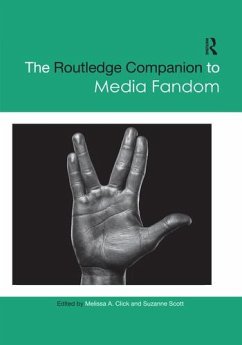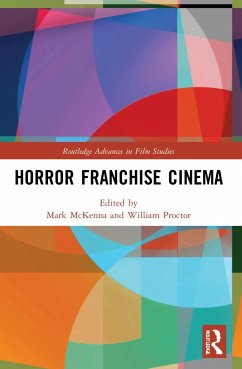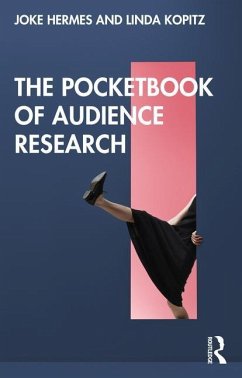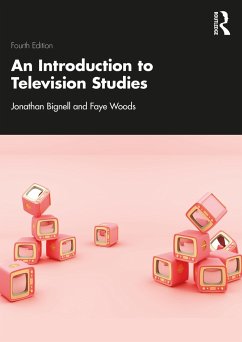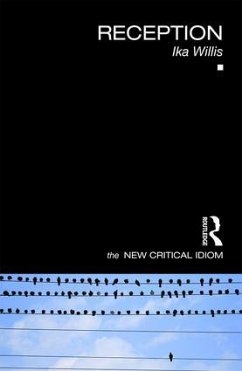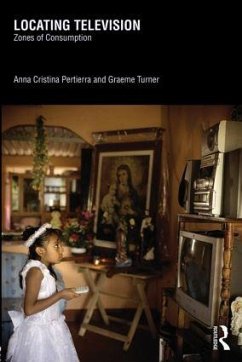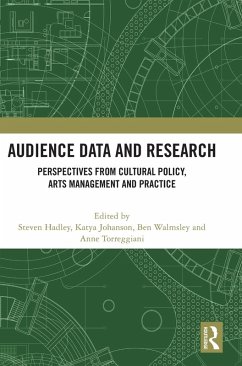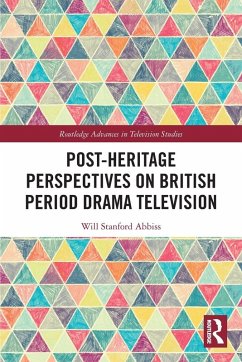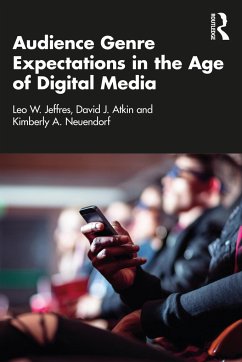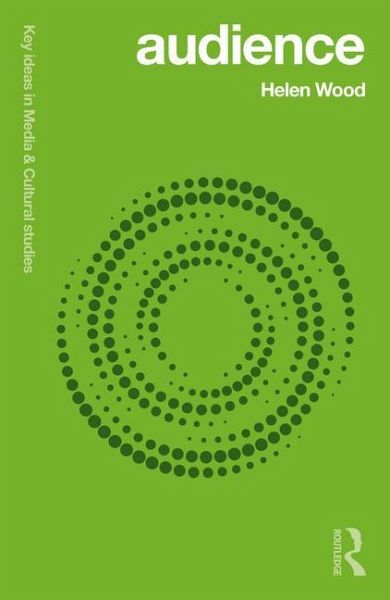
Audience
Versandkostenfrei!
Versandfertig in 6-10 Tagen
32,99 €
inkl. MwSt.
Weitere Ausgaben:

PAYBACK Punkte
16 °P sammeln!
This accessible guide through audience studies' histories outlines a contemporary Cultural Studies approach to audiences for the digital age.This book is not a survey of all existing audience research. Instead, its chapters survey parts of the field in order to draw some 'through-lines' from older traditions to contemporary debates, giving students a 'way in' to thinking about the current landscape from an 'audience-sensitive' perspective. In order to do this, the book utilises a series of verbs to organise and cut a path through audience research and register its ongoing relevance today. Thes...
This accessible guide through audience studies' histories outlines a contemporary Cultural Studies approach to audiences for the digital age.
This book is not a survey of all existing audience research. Instead, its chapters survey parts of the field in order to draw some 'through-lines' from older traditions to contemporary debates, giving students a 'way in' to thinking about the current landscape from an 'audience-sensitive' perspective. In order to do this, the book utilises a series of verbs to organise and cut a path through audience research and register its ongoing relevance today. These verbs are: audience, anchor, mean, feel and work. The list is not exhaustive and the reader is invited to think about what verbs they would add or change throughout the book. Audience suggests renewing the importance of 'form' as a cultural process and in 'circling-back' to Cultural Studies' 'circuit of culture', it proposes a modified framework for 'the digital circuit'. Eachchapter opens with a particular scenario for the reader to reflect upon and asks a specific question to help orient the account of research that is to come, especially for those new to Media and Cultural Studies and to audience studies.
Written in an engaging and accessible style, this book is ideal for both students and researchers of Media and Cultural Studies.
This book is not a survey of all existing audience research. Instead, its chapters survey parts of the field in order to draw some 'through-lines' from older traditions to contemporary debates, giving students a 'way in' to thinking about the current landscape from an 'audience-sensitive' perspective. In order to do this, the book utilises a series of verbs to organise and cut a path through audience research and register its ongoing relevance today. These verbs are: audience, anchor, mean, feel and work. The list is not exhaustive and the reader is invited to think about what verbs they would add or change throughout the book. Audience suggests renewing the importance of 'form' as a cultural process and in 'circling-back' to Cultural Studies' 'circuit of culture', it proposes a modified framework for 'the digital circuit'. Eachchapter opens with a particular scenario for the reader to reflect upon and asks a specific question to help orient the account of research that is to come, especially for those new to Media and Cultural Studies and to audience studies.
Written in an engaging and accessible style, this book is ideal for both students and researchers of Media and Cultural Studies.





